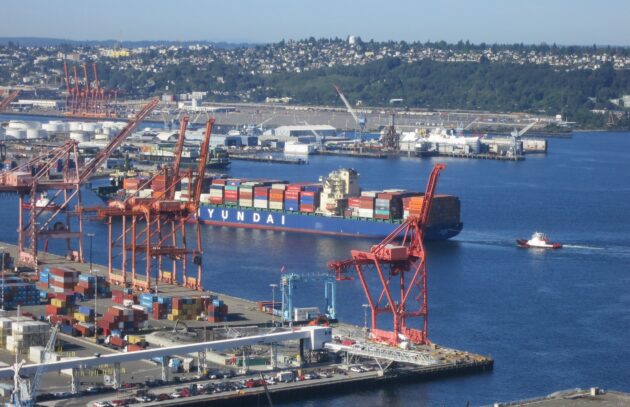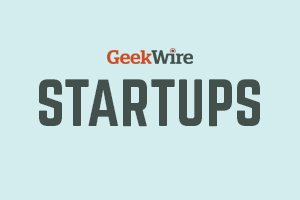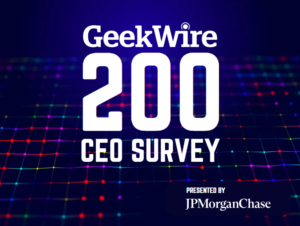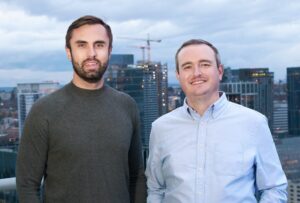
Startups are a long game. Focus on your product and your customers.
That’s the message some venture capitalists are sharing with startup leaders following President Trump’s tariff announcement Thursday, which sent U.S. stock markets tumbling and erased more than $3 trillion in market value.
“One of the best things about venture-backed startups is that you have to take a ten-year view because that’s how long it takes to build a company that matters,” said Chris DeVore, founding managing partner at Founders’ Co-op. “In that context, the tariff nonsense is mostly just noise.”
Peter Mueller, founding partner at Breakwater Ventures, echoed that sentiment in a note to entrepreneurs at Foundations, a Seattle startup community.
“In theory, a high-growth startup succeeds because it finds a thing people want, builds it, and sells it, not because the Fed decides to cut rates or because the administration issued a tariff policy,” he wrote in the note, which was shared with GeekWire.
But for startups in industries like hardware, manufacturing, and consumer-packaged goods — or those that deal with global supply chains — the new tariffs may pose short-term challenges.
“We are closely monitoring the situation,” said Kenny Lee, co-founder at Aigen, a Seattle-area agriculture robotics startup. “Our supply chain and manufacturing processes were designed with flexibility in mind, which helps insulate us from market/policy shifts, but this recent development is significant.”
Jim Xiao, an exec at Seattle startup Mason, said the tariffs will impact the company’s hardware costs and will be passed through to the customer. Mason offers a hardware-software platform for companies managing device fleets.
“Since we go directly to manufacturers and pass savings to our customers, the overall impact compared to using consumer alternatives isn’t as big as other devices,” he said. “However, the market sentiment is definitely causing slowdowns in purchasing across gov and healthcare.”
Paul Mikesell, CEO of Carbon Robotics, another agtech startup in Seattle, said his company is also monitoring the tariff news but he doesn’t expect any material impact on Carbon’s business.
Amish Patel, founder of hardware-focused accelerator Conduit Venture Labs, advised early stage hardware startups to be proactive about their supply chains, with contingency plans for alternative sourcing, assembly, and distribution.
Beyond that, Patel said it remains unclear how the proposed tariff plans will affect startups overall.
Jeremy Korst, a longtime Seattle-area tech leader and partner at consulting firm GBK Collective, attended a meeting Thursday for the executive advisory board at the Wharton School. He described the mood as one of disbelief and confusion.
“No one seems to grasp what the real underlying strategy is and how long this approach will persist, so the default approach is to not invest or make any large moves until some steady state becomes more clear,” Korst said.
That hesitation could have downstream effects for startups seeking venture capital or planning to exit. Startup valuations may dip if they track public market trends, as Crunchbase noted. Tariffs could also delay IPO timelines and prompt some institutional investors to pull back, The Information reported. Update: Klarna paused its planned IPO and StubHub did the same, according to The Wall Street Journal.
“The tariff plan brings little relief for the private market ecosystem, which has already been struggling under the pressures of low exit activity,” Paul Condra, global head of private markets research at PitchBook, said in a statement. “The industry now faces additional risk dimensions in assessing tariff exposure across portfolios, while added uncertainty extends the persistent hesitation toward dealmaking and capital deployment.”
This week serves as a reminder that relying on overseas production for cost savings may be an “outdated” strategy, said Dan Shapiro, CEO at 3D laser printer manufacturer Glowforge. He added that AI-driven technologies are making domestic manufacturing more attractive.
“When you weigh these concrete AI-driven improvements against the growing volatility abroad, the traditional offshoring calculation just doesn’t make as much financial sense as it used to,” Shapiro said.
Mueller ended his note to founders with straightforward advice: “Keep building. Keep talking to customers. Ignore the noise.”
Editor’s note: Comments from Xiao, Mikesell, and Condra added after initial publication.





